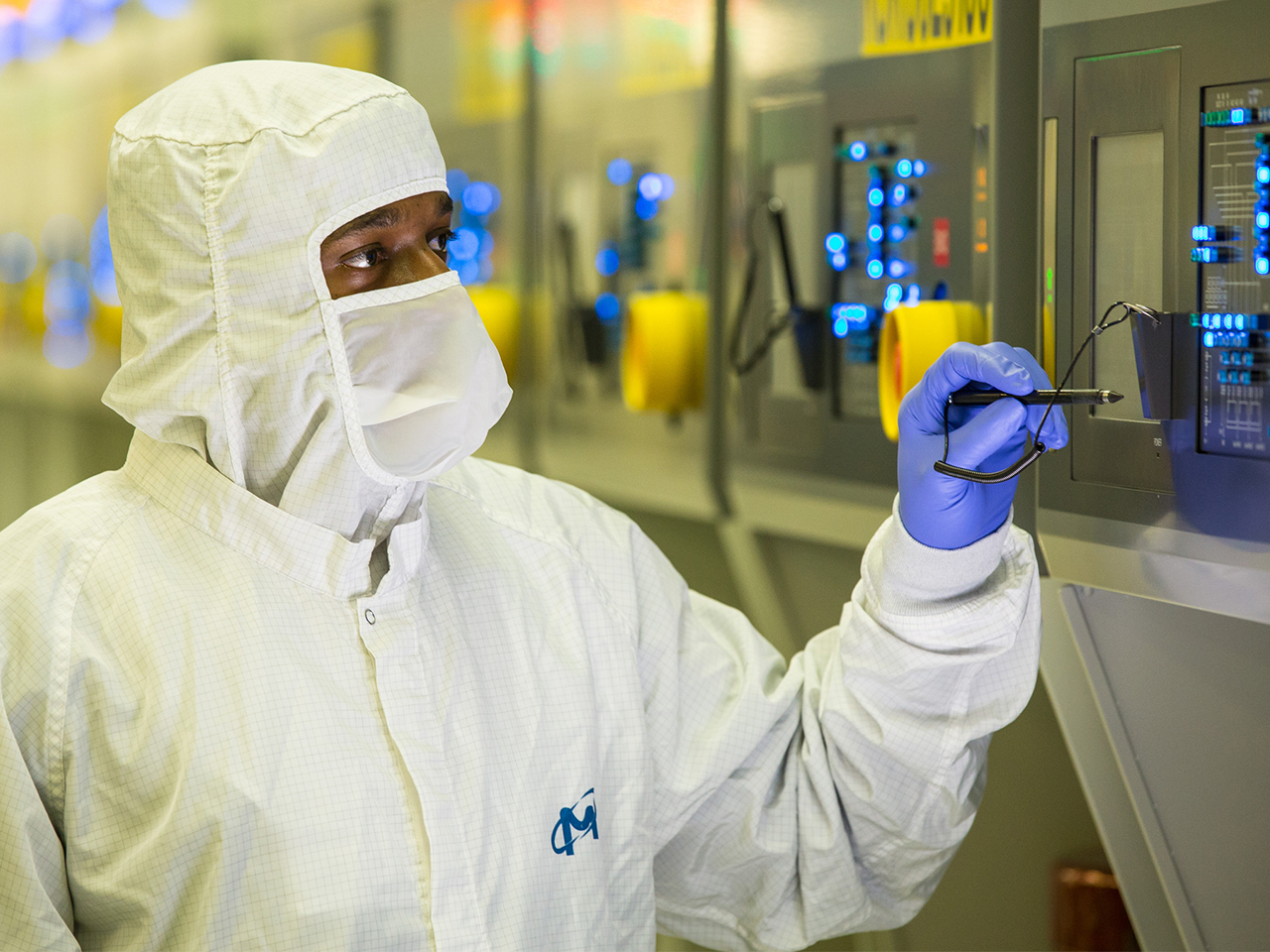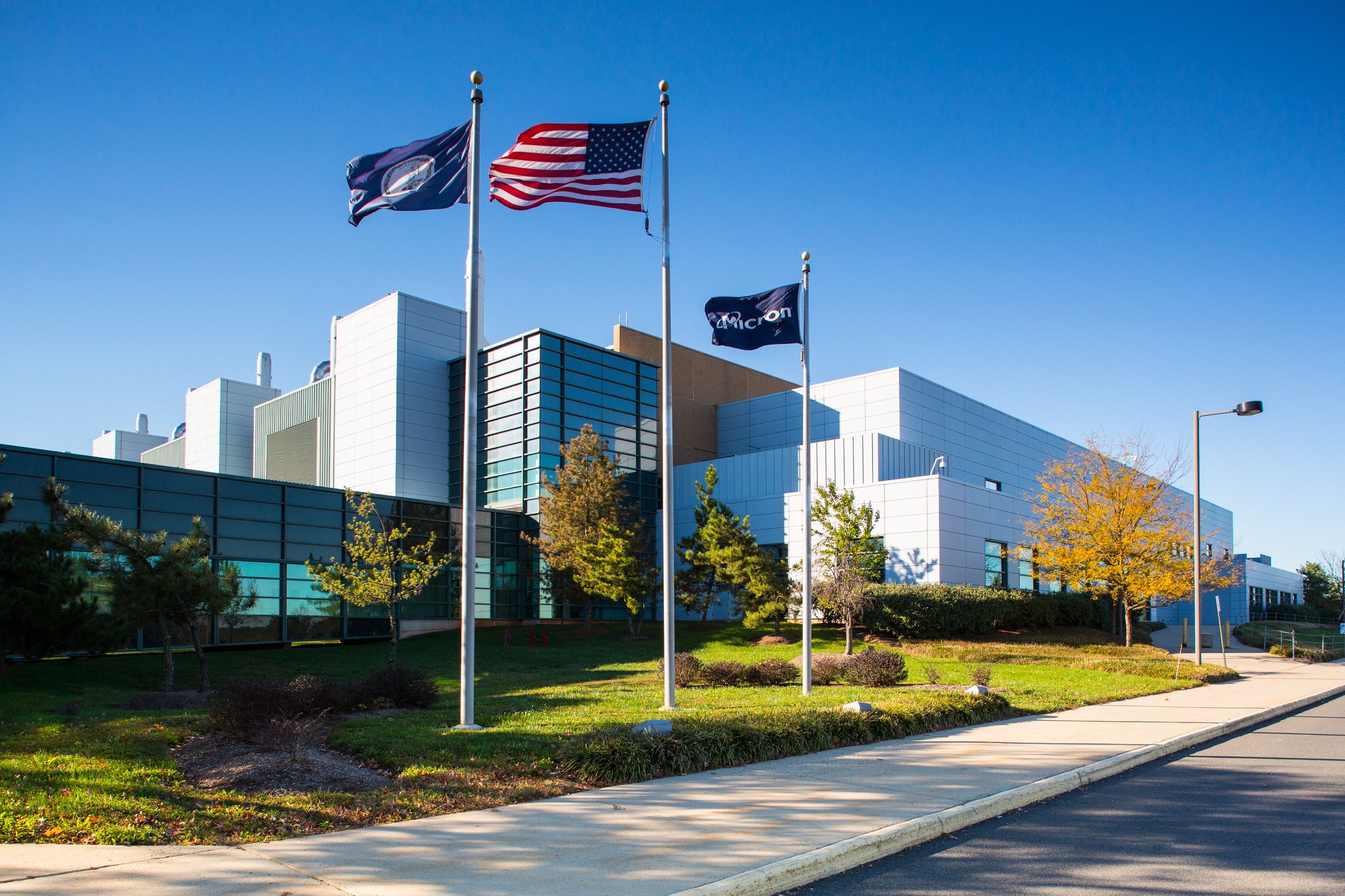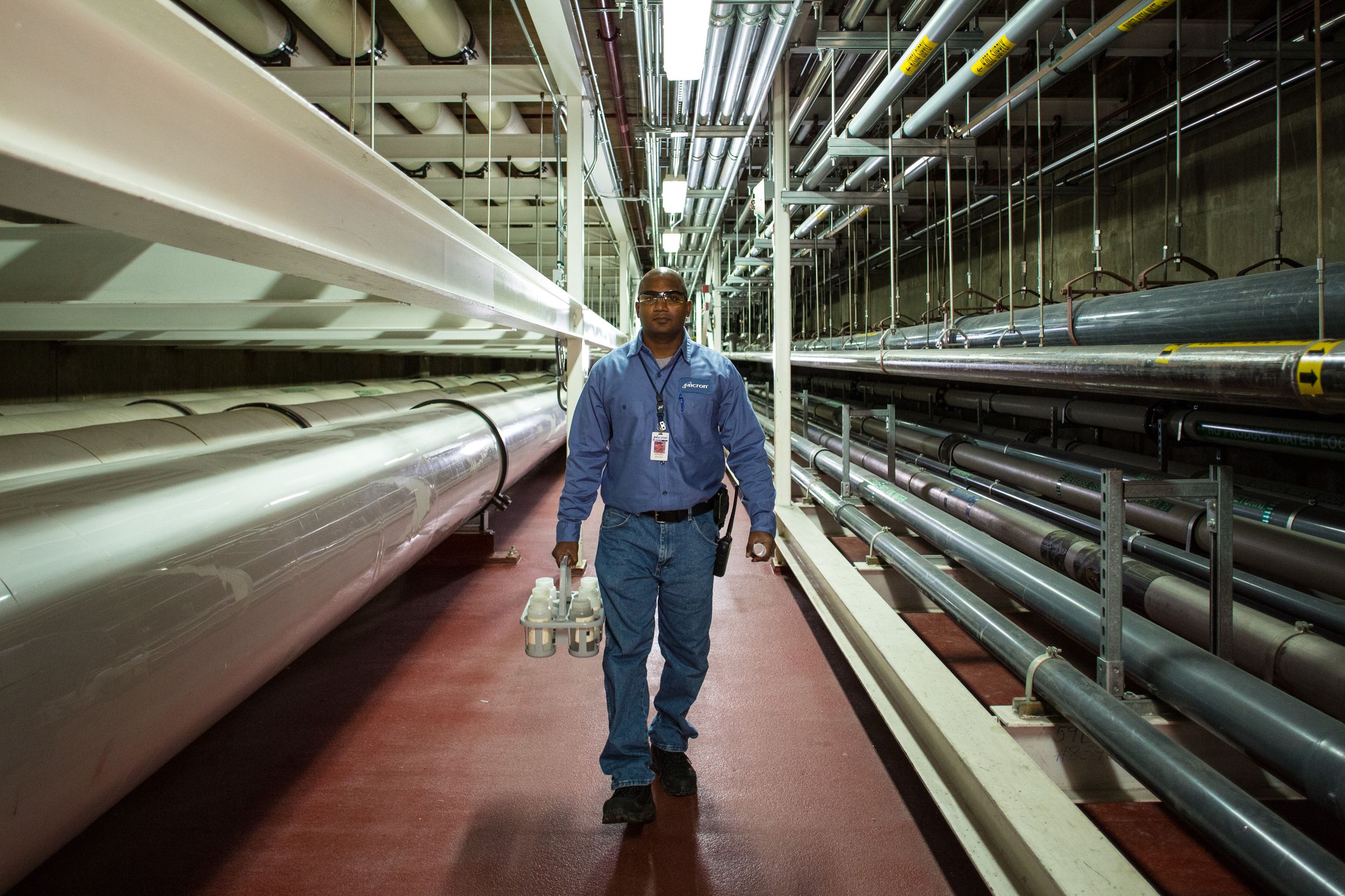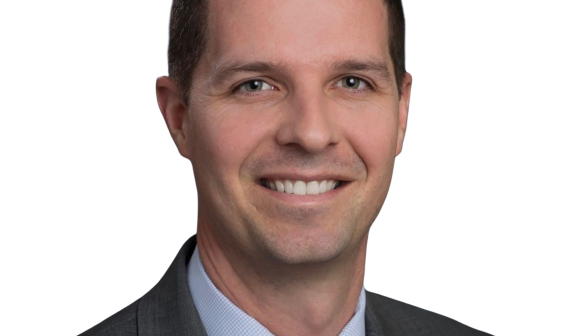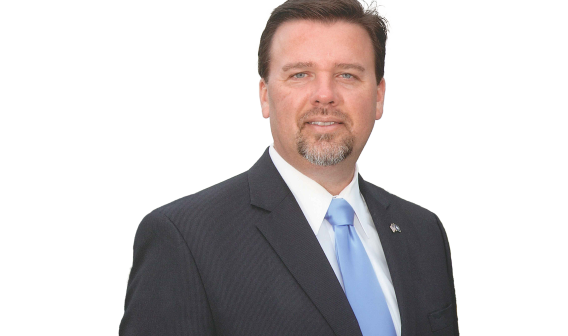Inside Virginia's Record-Setting Micron Project
When memory chip maker Micron Technology, Inc. committed to expand its operations in the City of Manassas in Northern Virginia, the headlines rattled off one impressive number after another: 1,100 new high-skilled jobs. Some 100,000 square feet of additional space. A $3-billion investment. All to be completed within a decade.
Between the lines there was another story, a case study in creativity and cooperation among the Commonwealth of Virginia, the City of Manassas, Dominion Energy Virginia, and the company at the center of it all, Micron. Here is a closer look at the initial opportunity (and challenge) posed to these entities, the plan of action that emerged, and the upshot that will continue to build momentum in Manassas, Northern Virginia, and the Commonwealth through 2030 and beyond.
The Opportunity (and Challenges)
Before breaking down the dollars and cents of Micron’s expansion into Northern Virginia, it’s important to know a few things about the No. 4 global semiconductor manufacturer by market share, according to Gartner.
Micron, which was founded in 1978 and is headquartered in Boise, Idaho, arrived in Manassas in 2002, taking over the Dominion Semiconductor facility owned by Toshiba Corp. With a focus on manufacturing memory chips, the 123-acre Manassas plant today hosts a 1,500 person-strong workforce, a number high enough to earn Micron the title of Manassas’ largest employer.
“Their presence underpins our tax base, underpins our utility system, and underpins our workforce,” said Patrick Small, economic development director for the City of Manassas. “They’re a stabilizing force in all those areas.”
Micron’s economic contribution extends well beyond Manassas’ 10 square miles and 43,000 residents. Not only is the company among the largest exporters in Virginia, but with this expansion (which represents one of the largest manufacturing investments in the history of Virginia), the Commonwealth will increase exports by more than $1.4 billion as a result, a roughly 3-5% jump in Virginia’s statewide exports.
As the years of Micron’s presence in the community grew, disparate tracks emerged in parallel paths. On one hand, Micron’s workforce was making Manassas its home in every sense of the word.
“They are a strong contributor to the social infrastructure of the area,” Small said. “They’re active in PTAs, church groups, and athletics.”
Micron was exhibiting all the traits of a strong corporate citizen, investing time, resources, and funding in building STEM education for area schools and colleges, including Northern Virginia Community College (NOVA), which had already established a workforce pipeline with the company.
But there was also a nagging feeling of anxiety. While equipment was updated, the plant itself was never expanded. Also, the facility was ultimately undersized, relative to both Micron’s other plants and similar semiconductor facilities around the world.
“Whenever your community is heavily dependent on one company, dislocation is a tragic event,” Small said. “Dislocation fears were an undercurrent in the city. Those of us who live and die by these things had this horrible feeling in the pit of our stomachs.”
Soon whispers became reality. Micron would seek out an expanded facility to manufacture memory chips, including those for self-driving and autonomous vehicles, in which the company is a market leader. Manassas and Virginia lay at the juxtaposition of opportunity and challenge of winning this expansion — with at least two other U.S. states, Singapore, Japan, and reported front-runner Taiwan also vying for the business.
It was time to emphasize the reasons a Virginia location makes sense for Micron, including proximity to a leading international air cargo gateway in Washington Dulles International Airport (IAD) and access to a workforce with the second-highest concentration of technology workers in the country according to Cyberstates 2019.
Virginia’s workforce is also one of the most educated in the country — 38% of the population has a bachelor’s degree or higher, ranking No. 6 in the U.S. in educational attainment. It was also time to sharpen the pencils and brainstorm some creative solutions.
“First and foremost, this is not an inexpensive place to do business,” said Small of his locality, and the gap was far greater when compared to the likes of Taiwan.
Another challenge was the available labor force for highly skilled and technical manufacturing positions. While Northern Virginia boasts a cluster of tech firms and talent, relatively speaking, Manassas is not a large manufacturing city.
There were also utility obstacles to traverse. Not only was Micron a massive electric user — the company had years earlier worked out a deal with Dominion Energy to keep costs manageable — but water and sewer capacity were also potential issues.
There was one more challenge to consider as well: the other suitors. While the VEDP-led team was able to conduct online research, and has a nuanced understanding of major incentive packages that states and cities offer, performing the same analysis for Taiwan and other locations proved to be more difficult.
Manassas’ Small framed a potential Micron move from their perspective: “It would not be a significant event for a global company like Micron to put its equipment up for sale and put a padlock on its door.”
The Plan
“There was a shared recognition from the outset by local and state leaders as well as our utility partners that the potential Micron expansion represented a high-quality, unprecedented opportunity to strengthen our high-tech manufacturing base in the Commonwealth of Virginia,” said Stephen Moret, president and CEO of VEDP. “Everyone worked collaboratively together to get it done.”
This characterized Virginia’s collaborative approach to vying for the highly coveted Micron expansion. Yes, all key players had teamed up to create a uniquely attractive incentive package addressing each of the challenges inherent in the project, but there was also a rare focus and cohesiveness to the joint effort.
Stan Blackwell, director of customer solutions and strategic partnerships with Dominion Energy Virginia/North Carolina Power, echoed this sentiment, “Through collaboration and extensive engineering analysis, the teams from Dominion Energy, Manassas, and Micron developed a plan that ensured the Virginia location would be a top contender for the expansion based on the electric supply.”
Manassas’ Small agreed: “We built a team of very qualified and very capable individuals who were all motivated for the same goal.”
This included Micron, the company at the center of attention. The willingness, energy, and rapport were all in order to fuel a strong team approach.
What Did It Take to Win?
Build a pipeline of skilled workers: Filling more than 1,000 highly skilled manufacturing jobs with right-fit technicians and engineers requires more than “help wanted” posters and job fairs, as the manufacturing labor gap is a growing national problem. According to Deloitte’s 2018 Skills Gap Study, 2.4 million positions may be unfilled between 2018 and 2028. The good news is that Virginia is ahead of the curve when it comes to bridging this gap.
“You can’t just have the Ph.D.s, you need to have the technicians to make the economy work,” said Steven Partridge, vice president of workforce development for Northern Virginia Community College (NOVA). A two-year college with six campuses, including one in Manassas, NOVA is one of several schools — a group including Old Dominion University, Virginia Commonwealth University, Virginia Tech and Hampton University — that have built relationships with Micron.
“We’re a steady source of talent for them,” said Partridge, citing an influx of hires from NOVA’s automotive program. Micron’s partnership with the school ranges from providing internships to helping incubate NOVA’s SySTEMic programs. In fact, Micron has supported NOVA SySTEMic, a public-private partnership designed to support K-12 students pursuing STEM degrees and certificates, since the program’s launch in 2010.
NOVA is also doing much more to prepare its students for the roles Micron is seeking to fill, as well as other advanced manufacturing and engineering operations. This effort is highlighted by the addition of mechatronics and engineering technology degree programs, which launched in the fall 2018 semester. In conjunction with these programs, NOVA also received the green light to create a Fabrication Laboratory, or “Fab Lab,” at the Manassas campus, a high-tech hub designed to bring together today’s and tomorrow’s workforce. The project is being funded by the Growth and Opportunity for Virginia (GO Virginia) economic development program, and is being supported by Micron, as well as the U.S. Army’s Night Vision and Sensors Directorate, and BAE Systems.
“We start with the end goals in mind when we build these programs,” Partridge said. “This includes talking to companies, reviewing job descriptions, and looking at top workplace performers to see what they have in their background. Hopefully, the graduates we’re turning out are exactly what the employer needs.”
Enhance utilities: Power and sewer capacity — and lots of it. This is vastly oversimplifying the challenge of supporting the massive Micron expansion from a utilities perspective, but it’s a solid starting point. When it came to power, Micron’s requirements were unique, prompting Dominion Energy to assemble a robust team and significant resources early in the decision-making process. Specifically, the challenge for the utility included supplying the necessary reliability and redundancy while dialing in workable costs, including both upfront investment and a competitive rate schedule. What emerged was a complex contractual agreement that was far from an off-the-shelf solution.
“Dominion Energy was pleased to work in close partnership with the City of Manassas and Micron to deliver a creative solution for the long-term energy supply of Micron’s new world-class expansion,” Dominion’s Blackwell said. “The manufacturing of high-end semiconductors requires an extremely reliable electric supply at a cost that is competitive in a global market.”
Then there was a complicated sewer situation. While Manassas feeds into a plant in Fairfax County, which was one of the most advanced treatment facilities in Virginia, there was an issue when it came to opening up access to an expanded Micron plant. Manassas had a stake of ownership in the facility, but could exceed its capacity with the additional demand. The city turned to the cutting-edge practice of retaining and then jettisoning waste in a carefully calculated manner so as to not disturb its fixed capacity.
The creative solution required a new storage tank, one of many infrastructure enhancements that the team needed to work through the financing of — balancing incentives and Micron contributions — in order to make its project bid as attractive as possible.
Develop creative incentives: The promise and potential of Micron’s hefty expansion, from export gains to job growth, proved enough to prompt VEDP, Manassas, and Virginia’s Major Employment and Investment Project Commission to develop a custom performance grant from the Commonwealth totaling $70 million, paid in two installments over the next two years.
The value of Virginia’s comprehensive solutions package to Micron goes deeper than the custom performance grant. That’s because the solutions came in so many different forms, from myriad utility upgrades to the aforementioned GO Virginia workforce development funding, and the creation of attractive tax rates.
Take Micron’s local tax bill, for example.
“We hadn’t raised their tax bill in a decade,” Manassas’ Small said. “As their equipment came in and out, we adjusted the rate so we collected the exact same amount… That relationship allows Micron to predict its costs and us to predict our revenues, taking the volatility out of it.”
As the deadline for the bid approached, Virginia had put its very best deal forward.
The Upshot
At an August 2018 press conference the Micron expansion was announced. In addition to the headline-grabbing numbers, including Micron’s $3-billion investment and creation of 1,100 jobs, other key details began rolling out.
For example, there was Micron’s planned global research and development center for memory and storage solutions, where engineers would innovate the future of autonomous vehicles. And finally, the cherry on top of the workforce development piece: a $1-million investment from the Micron Foundation in STEM education, with a focus on programs that support women and underrepresented minorities.
Manassas and Virginia weren’t the only winners. Micron was also included among the victors.
“Micron is grateful for the extensive engagement of state and local officials … to help bring our Manassas expansion to fruition,” Micron President and Chief Executive Officer Sanjay Mehrotra said in a statement. “We are excited to increase our commitment to the community through the creation of new highly skilled jobs, expanded facilities, and education initiatives.”
As for Manassas’ Small, his 10 square miles are already buzzing with a frenzy of activity, with the expansion well underway. In the first six months since the announcement, the company had outlaid more than $100 million in capital expenditures and created 150 new jobs.
